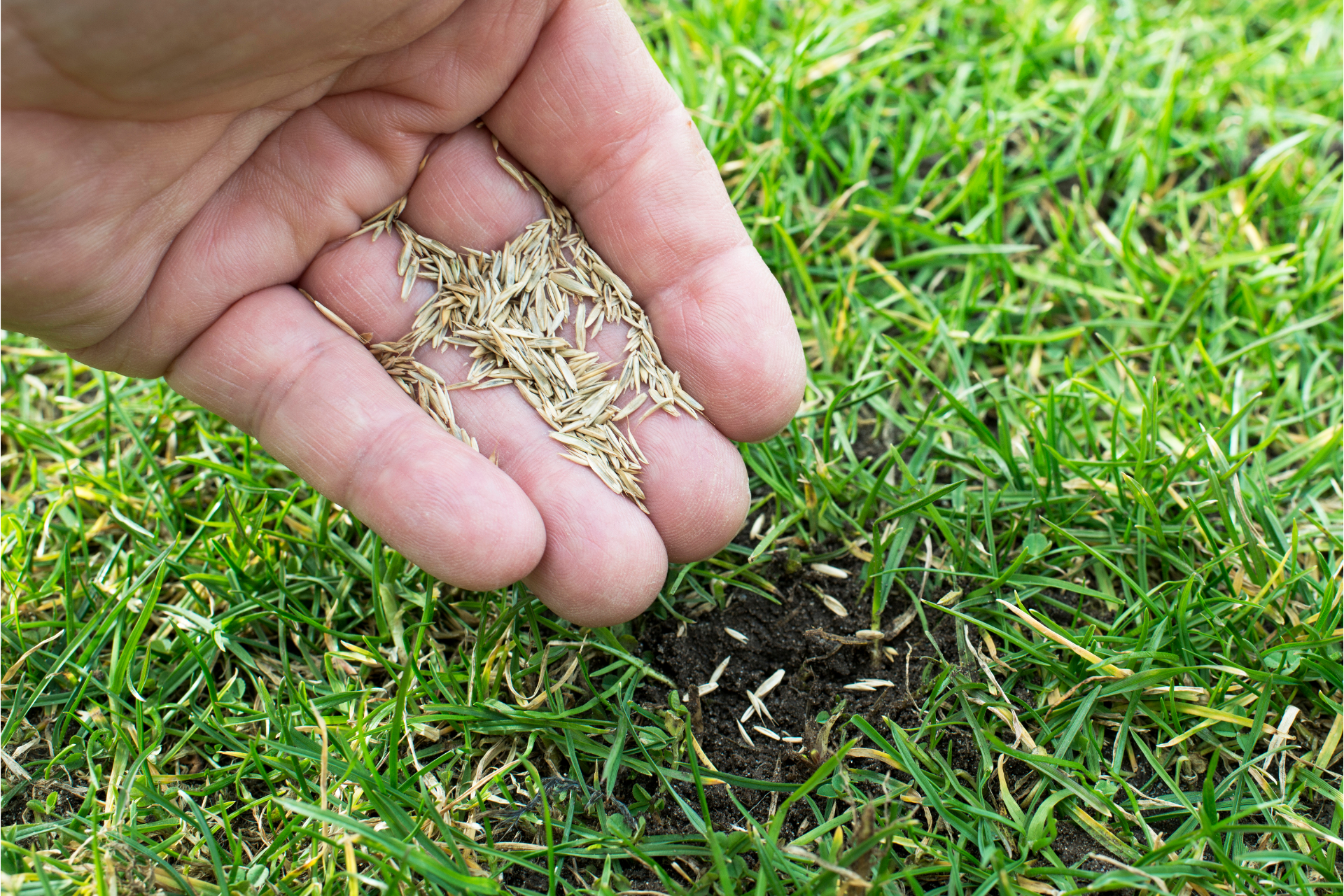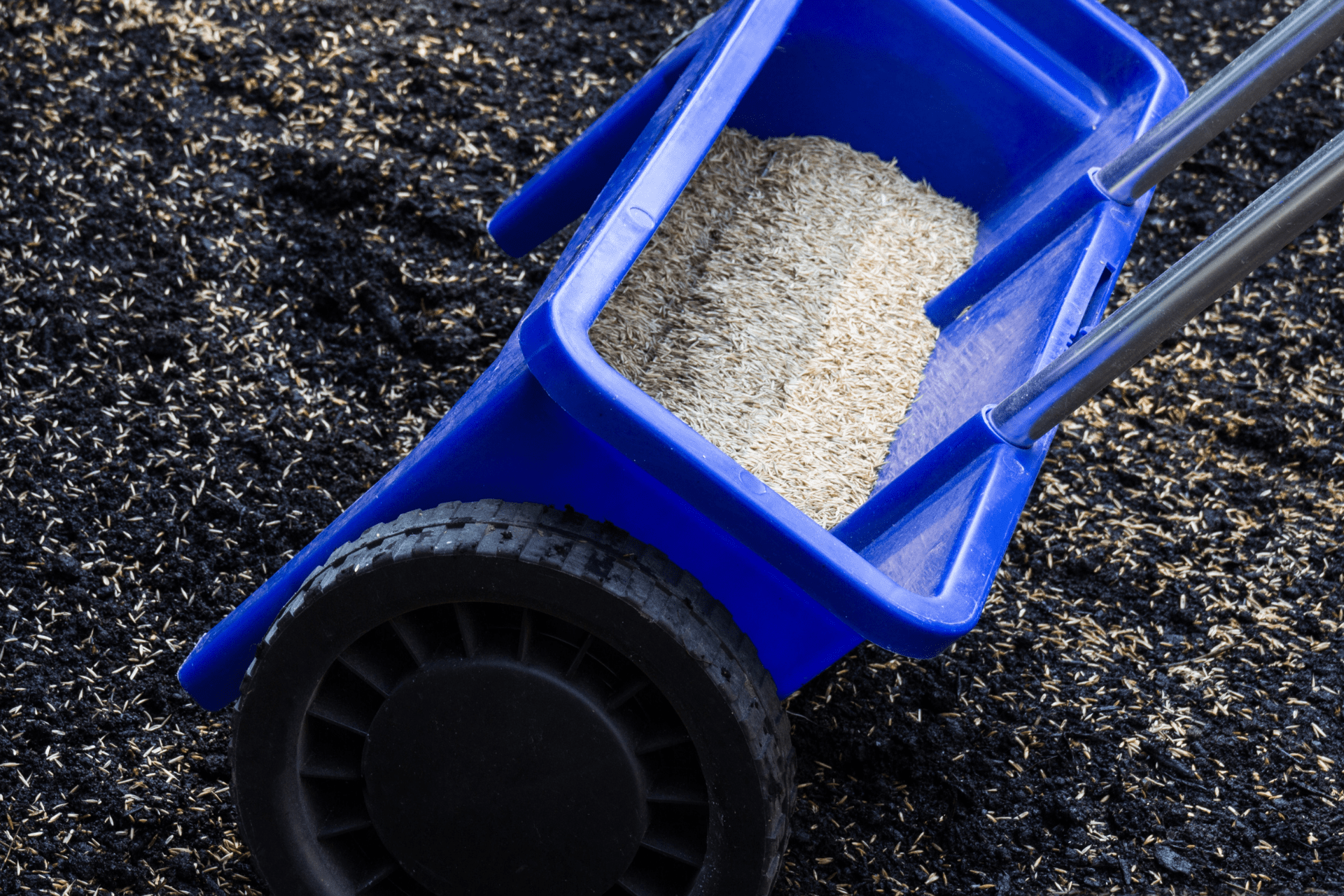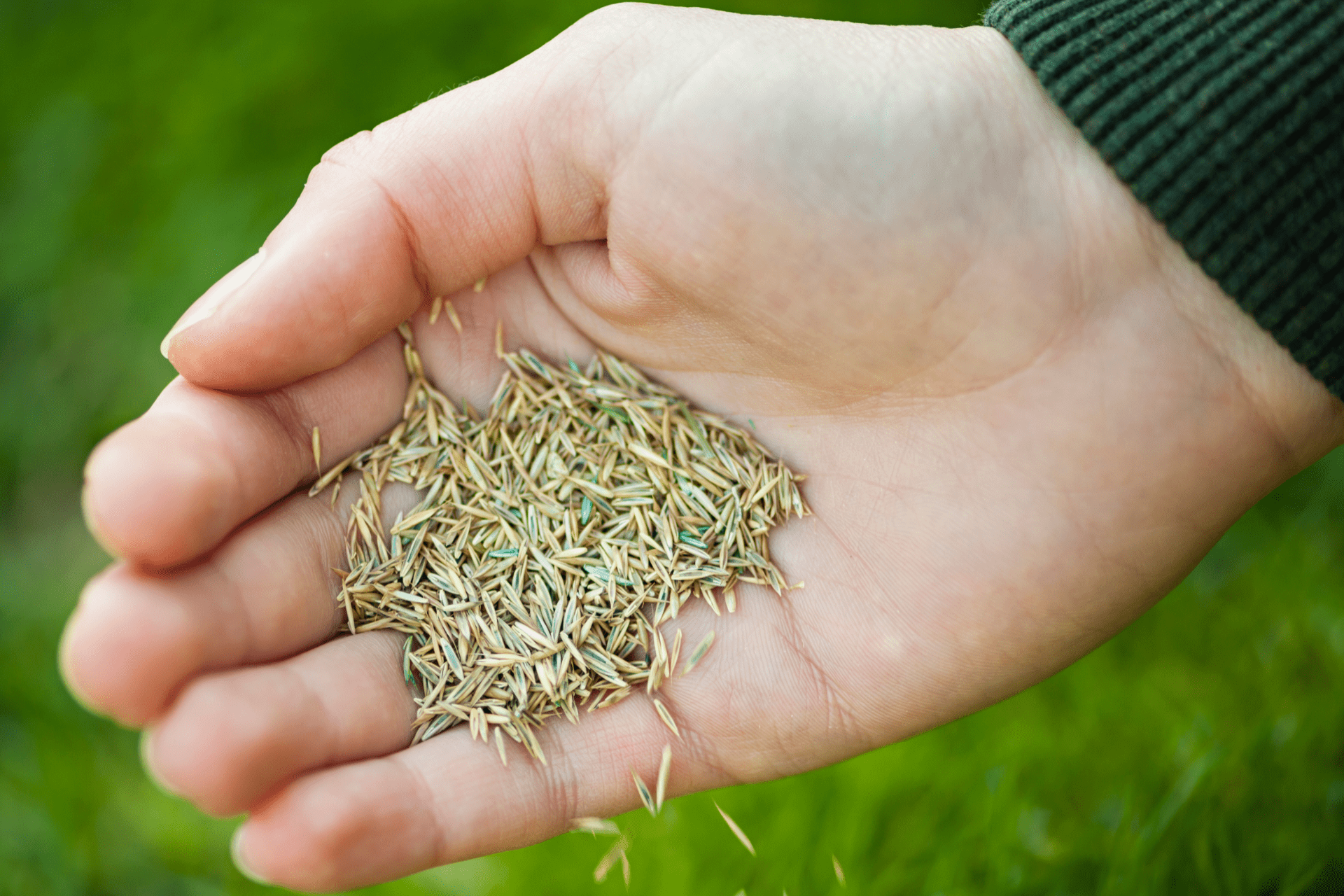
Overseeding is an effective way to improve lawn density, repair bare patches, and introduce stronger grass varieties. In Michigan, where winters can be harsh, many homeowners consider overseeding in early spring—February to March—to give their lawns a head start before summer. However, is this really the optimal timing for successful grass establishment?
This article will explore the benefits and potential drawbacks of overseeding in early spring, helping homeowners determine whether it’s the right approach for their lawn.
Understanding Overseeding and Its Purpose
Overseeding is the process of spreading new grass seed over an existing lawn to enhance its overall health and appearance. This method differs from slit seeding, which involves cutting into the soil to plant seeds more directly. In Michigan, cold temperatures and snow cover can lead to thinning grass, making overseeding an essential part of lawn care.
Homeowners often overseed to:
- Thicken their lawn and reduce patchiness
- Introduce more resilient grass varieties
- Repair winter damage and improve spring growth
- Reduce weed competition by filling in bare spots
For overseeding to be effective, conditions must be right, including soil temperature, moisture levels, and proper seed-to-soil contact. While many homeowners consider early spring overseeding, fall is actually the ideal time in Michigan. The warm soil temperatures, reduced weed pressure, and favorable growing conditions from late August to early October provide the best environment for seed germination and establishment.
If spring overseeding is necessary, waiting until mid-March to April when soil temperatures reach 50°F consistently will yield better results than starting too early. The question is, does early spring provide the ideal environment for success?
Benefits of Overseeding in Early Spring
While fall remains the ideal time for overseeding in Michigan, spring overseeding from mid-March to April can still offer advantages when performed under the right conditions and proper soil temperatures.
- Jumpstarts Lawn Recovery After Winter
Michigan winters can leave lawns thin, patchy, and weak. Overseeding in early spring helps fill in bare spots caused by snow, ice, and foot traffic. New grass growth strengthens the lawn before weeds have a chance to take over.
- Reduces Weed Competition
A dense lawn is one of the best defenses against weeds. When timed correctly in spring, overseeding can help establish grass aggressive weeds like crabgrass and dandelions emerge. This can reduce the need for chemical weed control later in the year.
- Takes Advantage of Spring Moisture
Mid to late spring in Michigan typically provides consistent rainfall, which helps with seed germination and establishment. This natural moisture can reduce the need for supplemental watering, though careful monitoring is still necessary.
- Strengthens the Lawn for Summer Stress
By overseeding in mid-March to April, homeowners give their lawn extra time to develop strong roots before the intense summer heat arrives. A well-established lawn is more resistant to drought, disease, and heavy foot traffic.
When done correctly, overseeding in early spring can help create a healthier, more resilient lawn.

Drawbacks of Overseeding in Early Spring
While early spring overseeding offers several benefits, it also comes with challenges that can affect seed germination and long-term lawn health. Homeowners should carefully consider these factors before deciding if this timing is right for their lawn.
- Unstable Weather Conditions
Michigan’s early spring weather is unpredictable, with fluctuating temperatures, frost, and occasional snowfall. Grass seed requires consistent soil temperatures of at least 50°F to germinate properly. A sudden cold snap after overseeding can slow or even stop germination, leading to poor results.
- Competition with Pre-Emergent Herbicides
Many homeowners use pre-emergent herbicides in early spring to prevent crabgrass and other weeds from sprouting. However, these treatments can also prevent grass seed from germinating. If overseeding is done too soon after applying pre-emergents, the new grass may fail to establish.
- Slower Germination Compared to Fall
Grass seed germinates faster in the fall because of warm soil temperatures and fewer competing weeds. In early spring, soil is often still cold from winter, which can delay growth. This means homeowners may not see full lawn thickening until much later in the season.
- Risk of Summer Stress for Young Grass
Grass seeded in early spring may not have enough time to develop a strong root system before the summer heat arrives. Newly established grass is more vulnerable to drought and foot traffic, which can lead to thinning or die-off during peak summer months.
While early spring overseeding can work under the right conditions, these challenges highlight why fall is often the preferred season.
How to Maximize Success When Overseeding in Early Spring
For homeowners who choose to overseed in early spring, careful planning can improve results despite the challenges. Here are key steps to increase success:
- Monitor Soil Temperatures: Grass seed germinates best when soil reaches at least 50°F. Seeding too early can lead to poor results.
- Choose the Right Grass Seed: Cool-season grasses like Kentucky bluegrass, perennial ryegrass, and fine fescues are best suited for Michigan’s climate.
- Time Pre-Emergent Herbicides Carefully: Many weed preventers stop grass seed from germinating. Wait several weeks before or after applying them.
- Keep the Soil Moist: Light, frequent watering prevents seeds from drying out, but avoid oversaturating the soil.
- Use a Starter Fertilizer: A phosphorus-rich fertilizer supports early root growth, helping new grass establish more effectively.
By following these steps, homeowners can improve the chances of successful overseeding in early spring.

Is Early Spring Overseeding Right for Your Lawn?
Overseeding from mid-March to April can help Michigan homeowners repair winter damage, promote thick spring growth, and reduce weed competition. However, this timing requires careful planning to overcome risks such as unpredictable weather, slower germination, and conflicts with pre-emergent herbicides.
While fall remains the optimal season for overseeding due to warmer soil and fewer weed pressures, spring overseeding can still produce strong results if done correctly. Homeowners should monitor soil temperatures, choose suitable grass seed, and practice consistent watering and fertilization.
If you're unsure about the right approach for your lawn, professional lawn care services can ensure proper overseeding, fertilization, and weed control. Independent Lawn Service provides expert Canton, MI lawn services and serves homeowners throughout Livonia and surrounding areas.
Contact (734) 600-9161 or use our convenient contact form to schedule a consultation and get your lawn on the path to a healthier, greener season.
